Note: Africa Days is a series of posts based on journals and letters from my years living in Kinshasa and traveling across Africa, beginning in 1974. You can read previous and following posts (for free) on this site or at https://genevaoverholser.com/
We had expected a lot of Ghana. It delivered even more, beginning with Accra, which I described in my journal as “a compelling city with verve and strength among its people, whose city it most definitely is — this capital of the first black African country to gain independence from colonialism.”
3 September, 1976, letter to my father: “I’m battling the sea wind to keep my paper on the table here at this small bar with its fine view of the huge and yet romantic castle that has such a tragically unromantic past. I had had no idea of the size and number of these European forts and castles dotted along this coast of Ghana.
“Elmina Castle, which we just toured, was begun in 1482 by the Portuguese and is said to be the oldest building in the tropics. It was built for the gold trade, then taken over by the Dutch for use as a slaving post. It’s now deserted and owned by the Ministry of Monuments, but it has none of the trappings of a tourist attraction. As a matter of fact, even the sole guide was sick today, and we were simply permitted to wander as we wished, alone. This added immeasurably to the power and mystery of the place. Even Mike and I had split up, because he went back to the car for our camera. So I walked silently and alone through the huge, upside down U-shaped corridor dungeons where the men were kept, the punishment cells, the female slave yard with a balcony where the Dutch officials looking for pretty bedmates stood to make their choices, the negotiation room where ship captains chose their cargo, the tiny prison cells for those who attempted to buck the system and finally the fateful tunnel to the sea.
“In the silence, the awfulness was everything.
“The museums in West Africa are interesting both from historical and artistic viewpoints. This region has been so rich in both areas, and its peoples and crafts are still so varied and compelling to see. It’s interesting as well to note the differences in colonial influences from Belgium to France to England. Nigeria and Ghana are both so advanced in terms of development and education, and both are so bustling and frantic compared to France’s more colorful and charming former colonies. But these are generalizations to which a score of objections jump up immediately, even in my own mind, so I’ll end that kind of talk by saying one more generalized thing which is virtually unassailable: The Belgians bombed all the way around.”
4 September, Cape Coast, adding to the same letter: “We saw an astonishing festival today. It marked the end of a three-week ban on fishing from the lagoon of this fishing city, followed by ceremonies to ask the gods for a profitable upcoming year for what everyone here calls ‘the fisherfolk.’ We watched the festival with a local man, the likable and well-informed head of the Cape Coast University Fire Brigade. We met him last night when we parked our bus on university grounds for the night, and he was pleased to show us the grand event, which in turn pleased us so obviously.
“The festival procession began at the lagoon and wound for several hours through the town. It consisted of what our host termed ‘Asafo companies’ — seemingly clan-like groups. About a dozen of these units came along, followed by the main officials of the district, and finally the principal chief.
“Each Asafo company boasted a flag carrier, frequently a young boy. He would jump and jerk and swirl the flag about, and if he was exceptionally good, bystanders would put money in his mouth. Then came a knot of people in all their finery, the men bearing fur-covered chests on their heads containing the clans’ holy items, then fetish priests and priestesses in white robes with whitewashed faces and white shell necklaces. Next came a carved wooden stool carried by a maiden on her head. On the stool was a lacy white pillow. The maiden would curl and swoon as if a great weight had come down upon her head. The stool is intended for a god, our friend Clement pointed out, and the maiden, in her movements, was signifying the god’s arrival or presence.
“Shortly thereafter would come the chief and his wife, surrounded by women waving pieces of wondrous fabric like fans, other women laying fabric before their feet, and a man carrying and twirling a huge fringed parasol over the chief’s head. Drummers followed the chief, who was invariably dressed in the grandest imaginable robes. The final chief’s entourage was virtually the same, though even grander and larger, and he was arrayed in genuine splendor — a robe of legendary Kente cloth woven by hand in strips, with genuine gold threads. He was carried on a couch on the head of four men and followed by two drums longer than a man and three times as big around. Occasionally, this segment of the procession would pause and the chief would raise his arms and dance with the people in graceful, sensual hula-like gestures while everyone waved the beautiful materials at him.
“The festival procession culminated at an oceanside park, where all the minor chiefs paid tribute to the highest chief, and he, interestingly enough, went to greet the regional commissioner, clad in his stark military uniform and carried about by Mercedes. Shows where the power is now, I guess, but the years haven’t cut into the pageantry. What we saw today was reminiscent of drawings of festivals we’ve seen in various museums, attended by bewigged Britishers instead of spellbound Americans.
“We have thought to ourselves again and again how close the past and present seem in Africa.”
After the festival we visited Cape Coast Castle, even more horrifying than Elmina in its dreadful dungeons. Later, in Kumasi, we watched the region’s craftsmen (and women) at work. After trading some items we weren’t often using for beautiful Adinkra and Kente fabrics, we said goodbye to this memorable country and headed to Ivory Coast.
12 September Abidjan: “Abidjan is very different from anywhere we’ve been. It seems like a colony, still. It’s beautiful physically — a true pearl, set on lagoons — and very modern and well-built. There’s an unbelievable Disney World-like hotel complex here and fantastically stocked supermarkets. We’ve spent a mint, but we’re pleased just to be able to find things.
“We will leave here in great shape. Miles is running better than ever after a $75 servicing, which took all day and failed, followed by our return and then their work on him all the next afternoon and evening ‘for free.’ Now he’s running smooth and powerful. All our clothes and our bedding are machine-washed-clean. We have 25 liters of boiled water, a cabinet stuffed with canned goods and fantastic fresh food as well, thanks to Ivory Coast, the land of plenty.”
Now we were bound for Mali, where we’d decide whether to attempt the Sahara crossing — or give up that piece of the dream. With all our preparation and the seemingly sound repairs on Miles, our prospects seemed good.




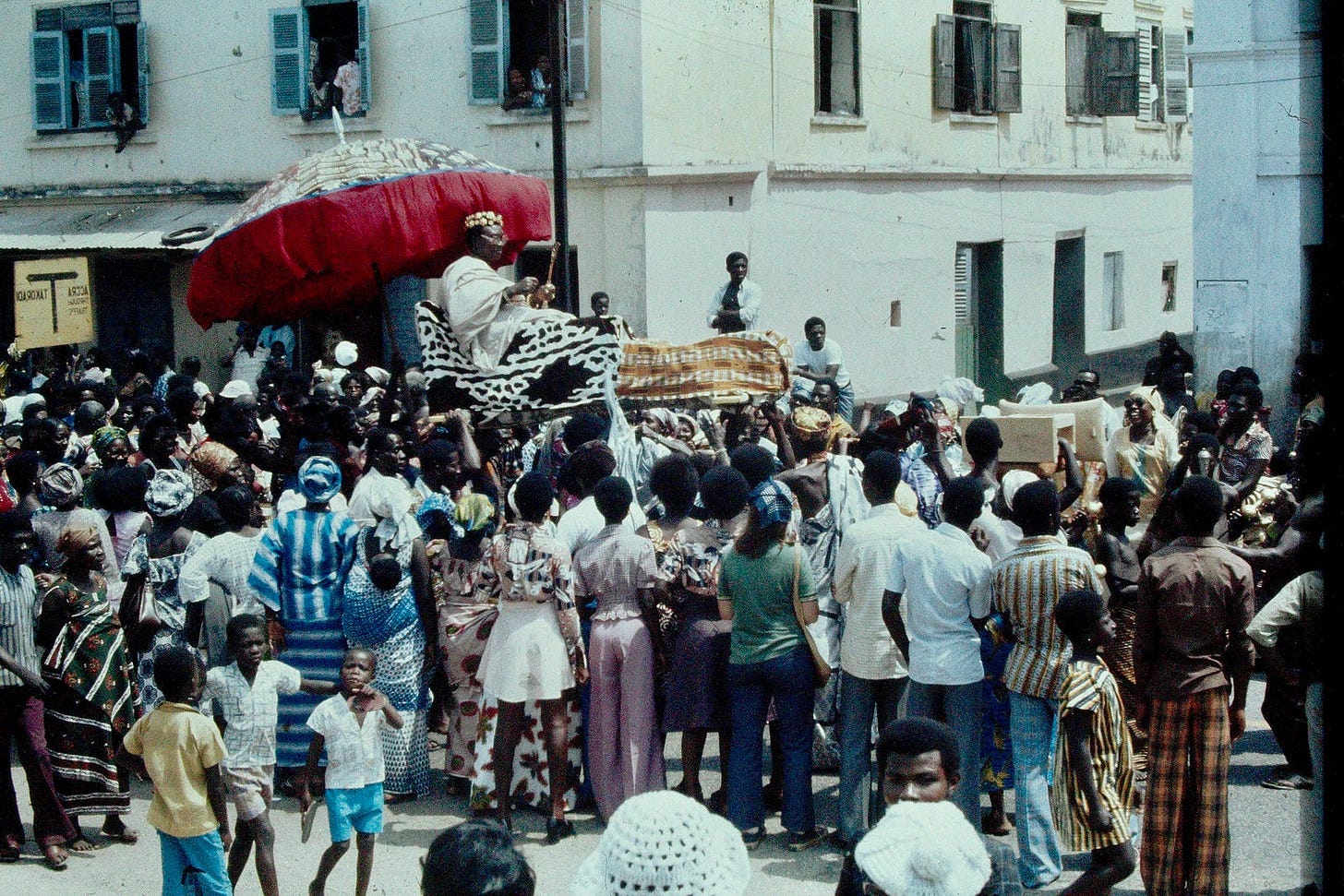

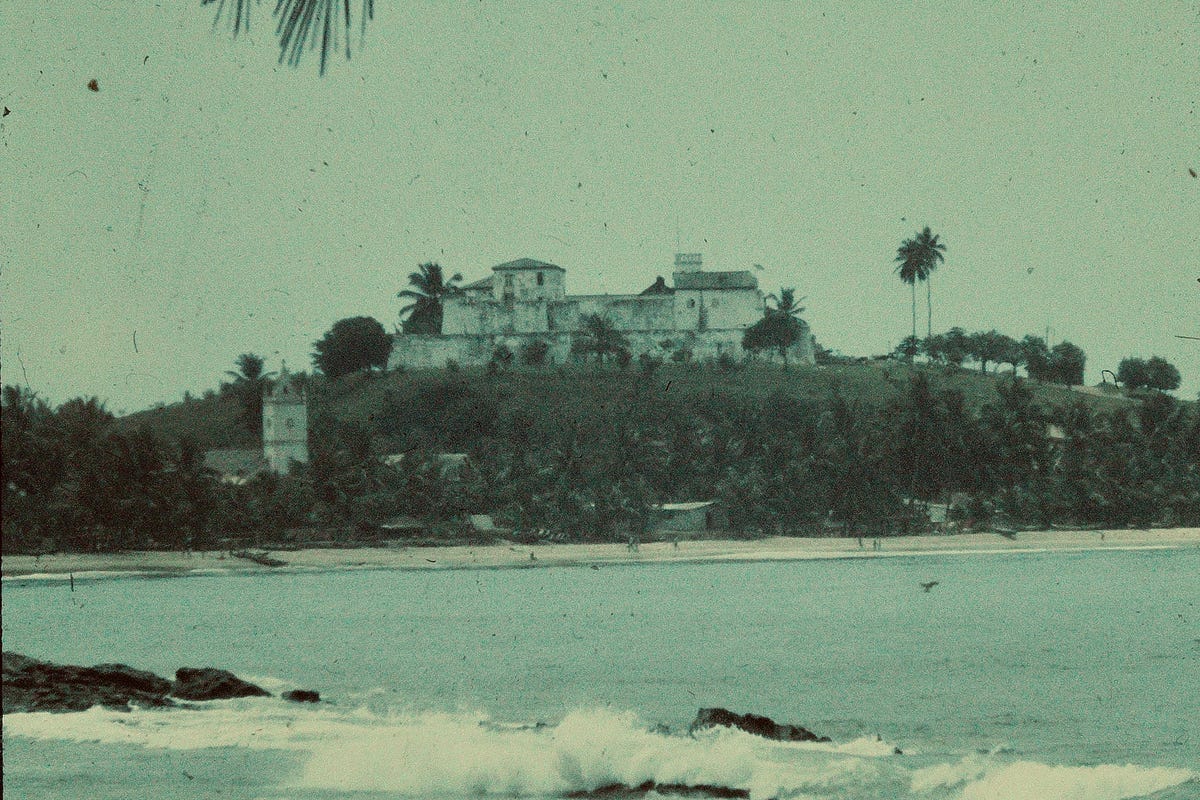

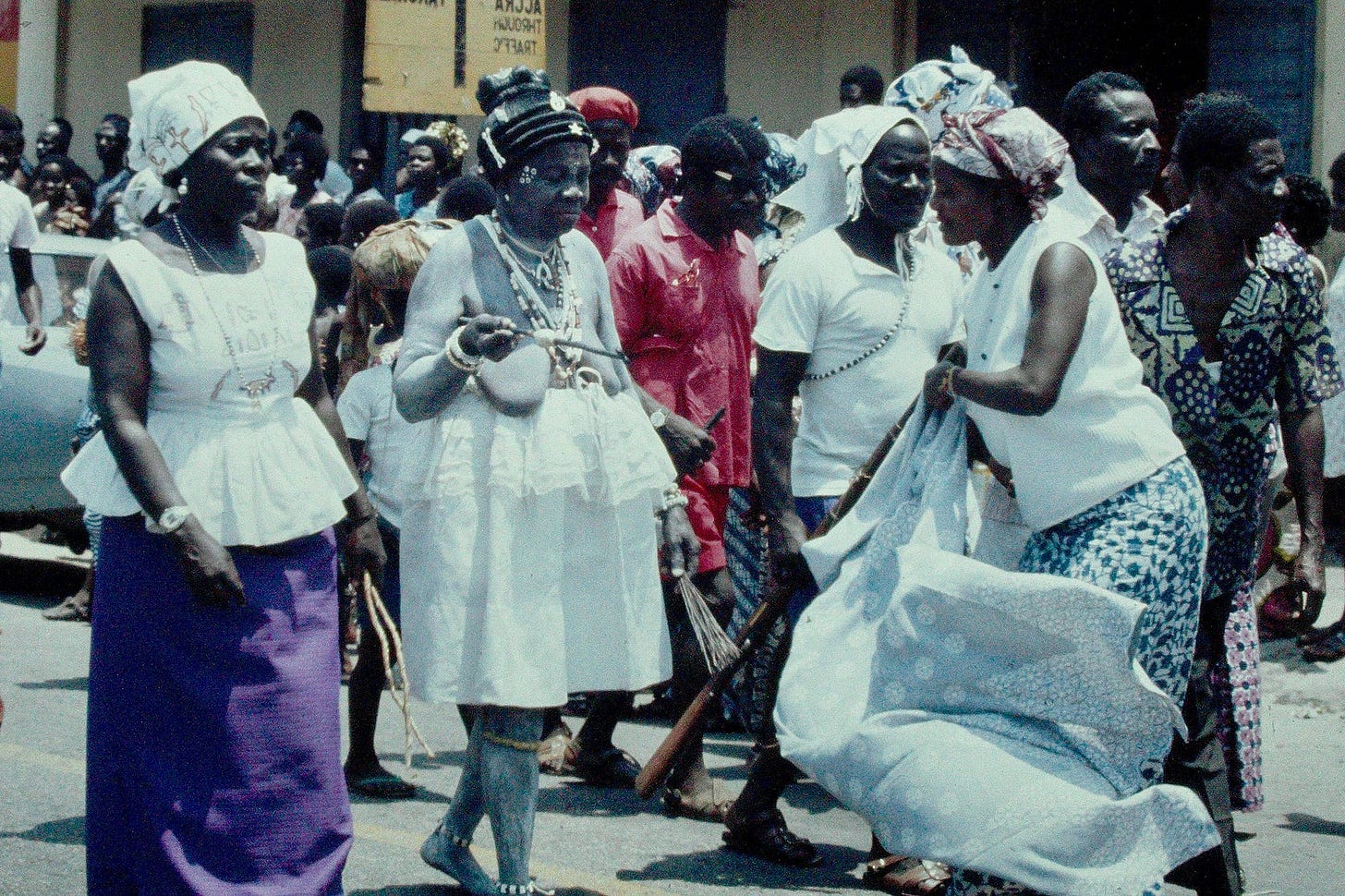


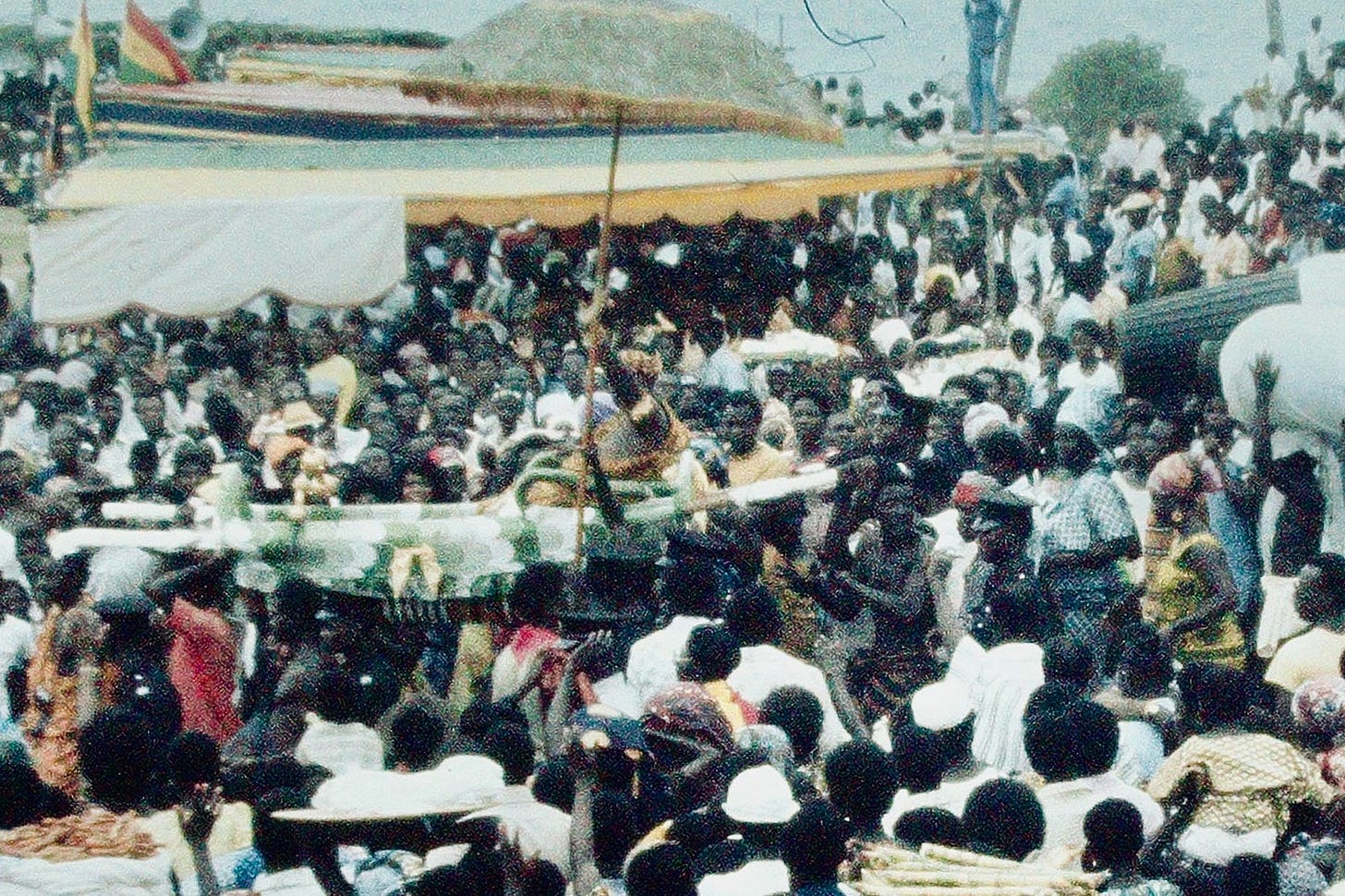
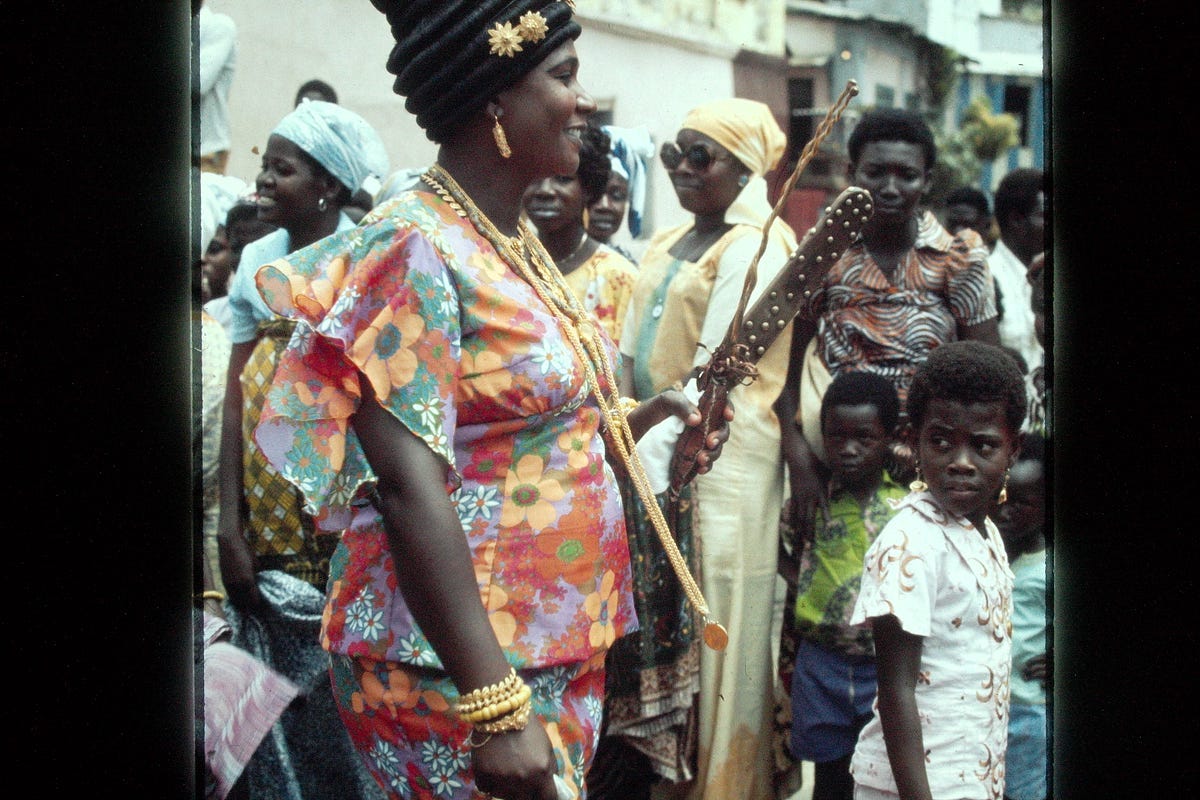
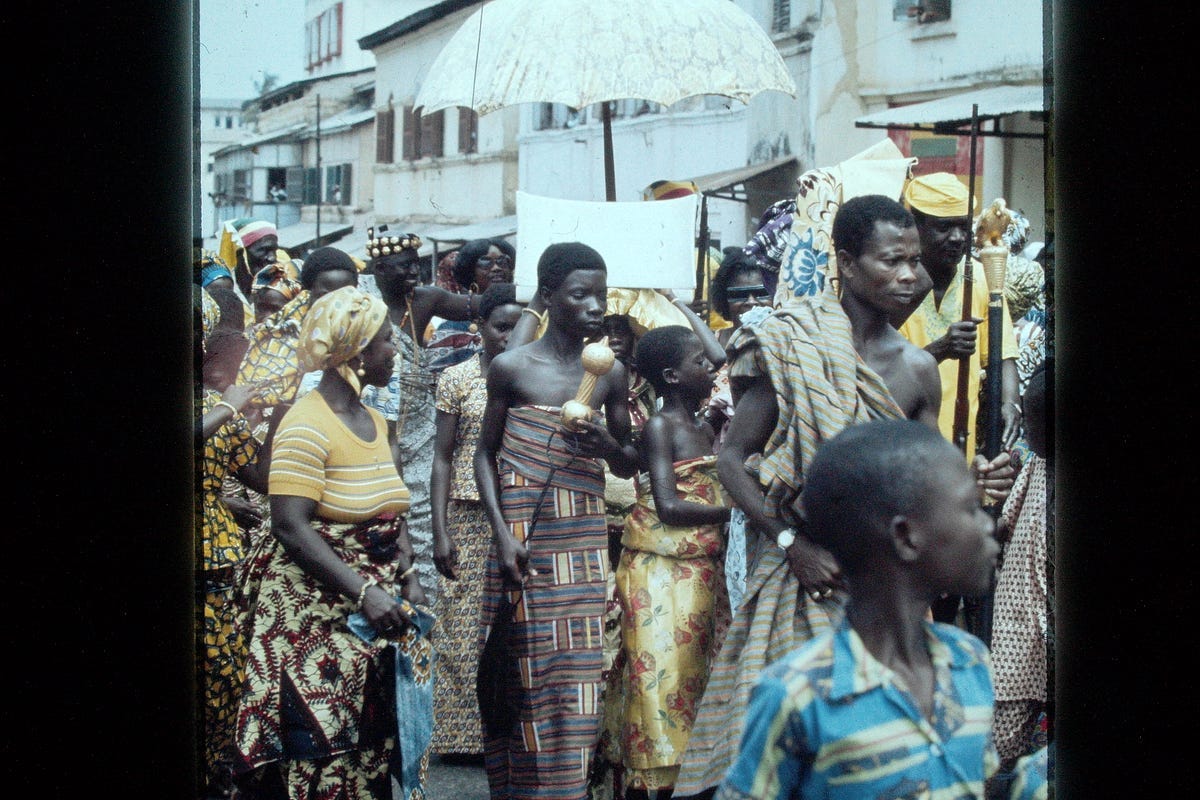
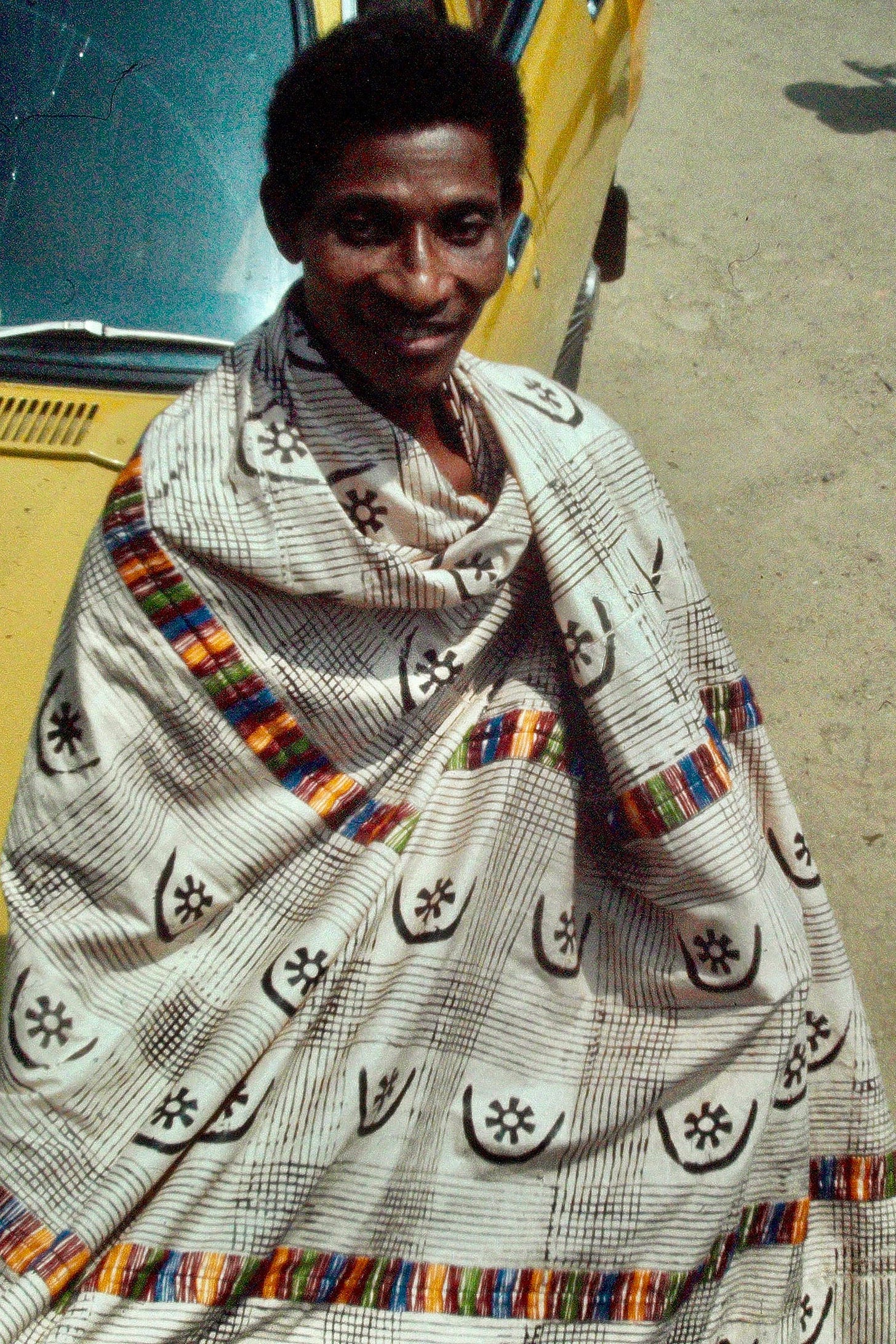
I'm still reading, Geneva. It's too horrific to contemplate what occurred in Ghana for so many centuries. You were obviously deeply moved and saddened. I'm glad you combined your narrative of Ghana with Ivory Coast to end on an upbeat note. Always glad to read about your provisions and restocking Miles! Do you still have your Kente cloth?